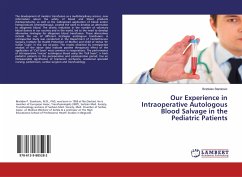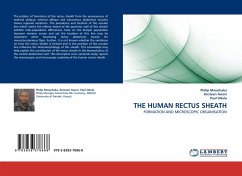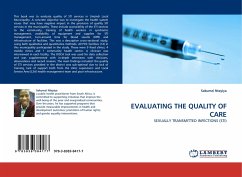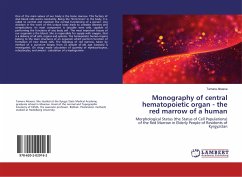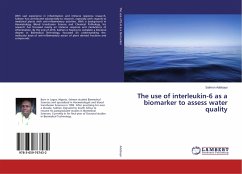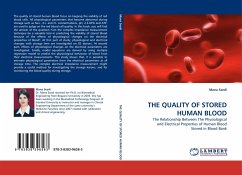
THE QUALITY OF STORED HUMAN BLOOD
The Relationship Between The Physiological and Electrical Properties of Human Blood Stored in Blood Bank
Versandkostenfrei!
Versandfertig in 6-10 Tagen
32,99 €
inkl. MwSt.

PAYBACK Punkte
16 °P sammeln!
The quality of stored human blood focus on keeping the viability of red blood cells. All physiological parameters that become abnormal during storage such as Na+, K+ and Cl- concentrations, pH, 2,3-DPG and ATP, are used to judge on the red blood cell quality. In this book, you will find the answer of the question "Can the complex impedance measurement technique be a valuable tool in predicting the viability of stored blood because of the effects of physiological changes on the electrical properties of blood". At first part of study; physiological and electrical changes with storage time are in...
The quality of stored human blood focus on keeping the viability of red blood cells. All physiological parameters that become abnormal during storage such as Na+, K+ and Cl- concentrations, pH, 2,3-DPG and ATP, are used to judge on the red blood cell quality. In this book, you will find the answer of the question "Can the complex impedance measurement technique be a valuable tool in predicting the viability of stored blood because of the effects of physiological changes on the electrical properties of blood". At first part of study; physiological and electrical changes with storage time are investigated on 82 donors. At second part; effects of physiological changes on the electrical parameters are investigated. Finally, model equations are derived by using multiple regression model to predict the physiological behaviour of blood from their electrical measurements. This study shows that, it is possible to estimate physiological parameters from the electrical parameters at all storage time. The complex electrical impedance measurement might provide a useful method for investigating the storage lesions, and for monitoring the blood quality during storage.



